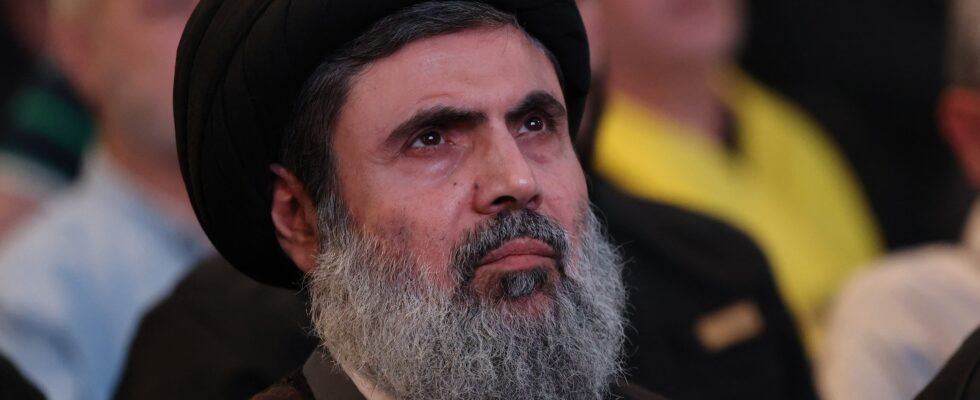Was Hachem Safieddine killed? “We have eliminated thousands of terrorists including Hassan Nasrallah (Editor’s note: the leader of Hezbollah killed on September 27 in an Israeli strike in the southern suburbs of Beirut) and the replacement of Hassan Nasrallah and the replacement of his replacement,” he said. said Israeli Prime Minister Benjamin Netanyahu on Tuesday October 8 in a video in English for the attention of the Lebanese, without providing names. A little earlier, it was Israeli Defense Minister Yoav Gallant who declared that Nasrallah’s “replacement” had “probably” been shot.
On Saturday October 5, a Hezbollah official told AFP that contact with Hachem Safieddine, expected to succeed Hassan Nasrallah at the head of Hezbollah, had been “lost” since Israeli strikes near Beirut the day before. Speaking on television after the publication of Benjamin Netanyahu’s video, Rear Admiral Daniel Hagari, spokesperson for the Israeli army, however, did not confirm the death of Hachem Safieddine. “We attacked a headquarters (of Hezbollah in the southern suburbs of Beirut) and we know that Hachem Safieddine was there,” he said. “The results of this attack are still being examined. Hezbollah is trying to conceal the facts,” he said, but “as soon as we know we will inform the public.”
Close ties with Iran
Gray beard, glasses and black turban of the Sayyed – the descendants of the Prophet Muhammad – Hachem Safieddine, born in 1964 in the village of Deir Qanoun En Nahr, in southern Lebanon, as stated by CNNbears a striking resemblance to Hassan Nasrallah, his maternal cousin with whom he studied in Iran in the early 1980s.
Last week, a source close to Hezbollah told AFP that Hachem Safieddine, head of Hezbollah’s executive council, was “the most likely candidate” to succeed him at the head of the Shiite movement financed and armed by Iran. Researcher Amal Saad, a Hezbollah specialist at Cardiff University, described him to AFP on Saturday as having “a lot of authority”, which made him “the strongest candidate”. Among the conditions to be met to take the reins of the movement, one must “be a member of the Shura Council” and “be a religious personality,” explains the researcher. This suitable candidate may not have had time to prove it.
Hachem Safieddine has close ties to Iran. His son is married to Zeinab, daughter of powerful Iranian general Qassem Soleimani, killed in 2020 in an American strike in Iraq. Among the most important members of the Shura Council, the party’s highest body, he was designated a “terrorist” by the US State Department in 2017 and by Saudi Arabia. Hachem Safieddine has long been a vocal critic of US policies, which he sees as aiding and abetting Israel’s actions in Gaza and southern Lebanon. In 2021, CNN recalls, he accused Washington of “interfering” in Lebanese domestic politics, saying that “American tyranny was sabotaging” nations in the region, citing Iraq and Afghanistan among examples.
Public appearances
After the death of Hassan Nasrallah, Hezbollah number 2 Naïm Qassem automatically took charge of the movement, and announced that a successor would be designated as soon as possible. It is the Shura Council, composed of seven members, which elects the leader of the movement.
Unlike Hassan Nasrallah, who lived in hiding and very rarely appeared in public since the last war between Israel and Hezbollah in 2006, Hachem Safieddine is the face of the party in numerous political and religious events. He was noted for his fiery speeches at the funerals of party commanders killed by Israel. “In our resistance, […] when one commander becomes a martyr, another takes up the banner […] with strength and determination”, he declared at the beginning of last July during the funeral of Commander Mohammed Nasser, killed in an Israeli strike in southern Lebanon.
